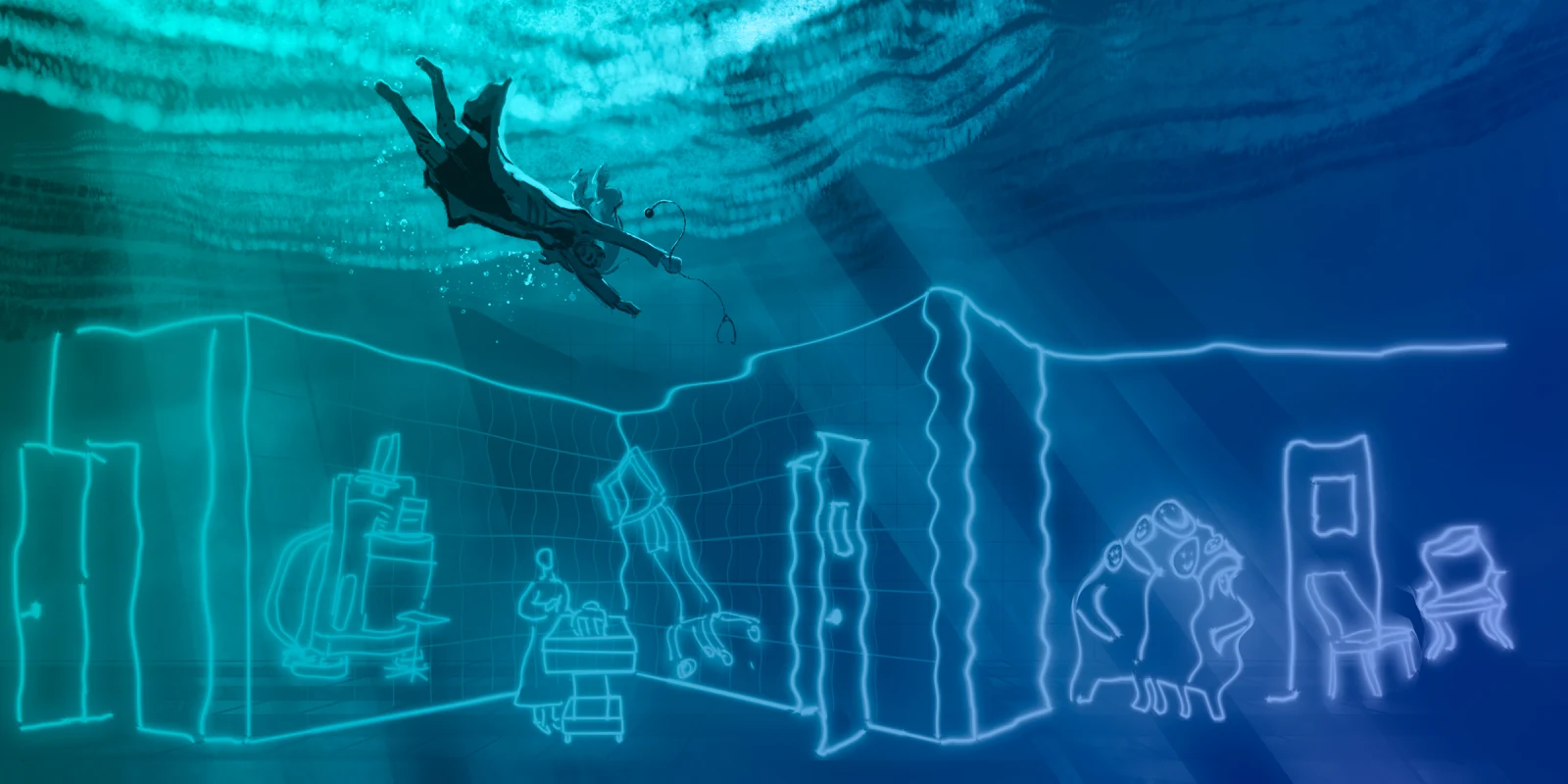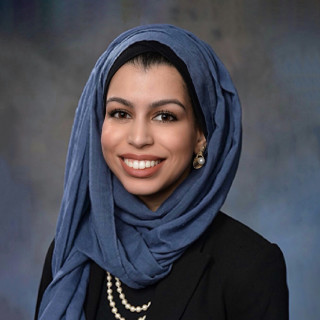The first time I confronted death, I was wearing oversized scrubs in a room filled with steel tanks holding bodies I was afraid to look at. We sat in groups of four, listening to our anatomy lab instructors go through the basics of what we were about to do, the equipment we were going to use, how to set up our anatomy session every day, and the pre-reading assigned to review our dissections. My heart was racing. The night before, I pre-read the assignment, learning the muscles and nerves of the back. I pulled up a video at the end that showed a demo of what we were to do the next day. As I watched the instructors make the first incision on the back of a body I had never known, with a face I would not see, the gravity of the situation hit me. Grief wallowed in the back of my throat and I slammed my laptop shut.
After the lecture concluded, the professors read a poem. I do not remember the poem, only the gist of it — that we were to embark on a journey to witness the intimate beauties and intricacies of a human body, and we would do so because of the gift of our selfless donors. I probably held my breath — I do not remember — as my tankmates and I grasped our hands over the scalpel and made the first incision together. It became symbolic to me, that the beginning of my medical training did not begin with life, it began with death, with intimacy, with intrusion, with selflessness, with honor, with responsibility, with steel tools, formaldehyde, and naivety. In the anatomy lab, going through every crevice of the human body became less about death and more about learning and discovery. Being a medical student was all about knowing everything: you study, you learn, and what you do not know, you research. It is about control. My experience as an intern has been everything but.
This is the moment I cannot shake: I was on my long shift, reviewing patient charts and writing notes, when the nurse ran up to me, eyes wide open, hand sliding across her neck. In that universal gesture, I knew what she was telling me. My mind froze. I remember whispering “Jo,” shaking my head, as if perhaps I could enter a different reality, one in which I would be doing anything other than what I had to do now. I had never performed a death exam. I was alone. The patient’s entire family was in the room, waiting for closure, and they did not know a doctor — who only two weeks ago was a medical student — would be the one closing this chapter.
I remember trembling while putting on my isolation gown outside the room, fidgeting with my face mask, fumbling with my gloves. I remember telling the nurse to grab the EKG – a comfort measure. I remember telling myself words of affirmation right outside the door: deep breath, you can do this, this is part of medicine, you’re a doctor now – and most importantly, this isn’t about you, do it for them, do it for their peace. I exhaled slowly, willed the shaking to stop, and stepped into the room, faking my composure.
His son talked first: He took his last breath. His wife was sobbing. His daughter’s body was thrown across his wife’s shoulder. They looked at me and I gave a gentle nod, too terrified to say anything. I gently touched his wife’s shoulder as I approached the hospital bed. I put my stethoscope to his body – the first time my stethoscope amplified silence. It was so strange I almost questioned myself, as if the echoes of that once magnificent pump still reverberated in the chambers of his chest. I watched him, waiting for a breath. I checked his pupils, his pulse, questioning myself every step of the way, wondering if I was doing this “right,” saying my findings out loud so the family knew what I was doing. When the nurse placed the EKG, we witnessed residual electrical activity and I panicked internally – what if I’m wrong? With a hesitancy in my spirit, I glanced at the clock and declared time of death. I stood among wails of grief I had no idea how to comfort, internally breaking. I apologized for their loss but felt empty, then stepped out of the room, ripped off all the PPE, found a quiet corner, and collapsed. Grief wallowed in the back of my throat as I tried to come to terms with declaring my first death.
In medical school, no one spoke of codes going on for hours where you tried everything possible to keep a person alive, how your body, even after it has stopped compressing another, never stops moving. How you are so busy sometimes the only time you have to process what has happened is when you’re sleeping, and these memories manifest as dreams that startle you awake. No one describes how the next day you wake up and you can barely move your limbs from how sore you are. Or how, despite everything — the medicines, the tests, the physicality of willing a person to live — you still lose them. That some people are very, very sick, and despite your knowledge, despite your team, despite all the advancements of medicine, you can’t quite catch up to looming mortality. No one really teaches you to forgive yourself, or that the purpose of medicine is not to be the hero. This is something we learn from experience.
Time in a hospital operates entirely on its own. We see life continue on its planned trajectory, expand, or shorten abruptly. This shifting and molding of different life cycles contained in hospital rooms somehow affects how you interpret your own. You can be in a room and listen to a heart that does not beat, a lung that does not breathe, and maintain composure as you glance at a clock and tell the family the hour and minutes of their loved one’s death, and at the end of your shift walk out the hospital to see panning views of life in its vibrancy — people walking, holding hands with loved ones, carrying bags of groceries, masked enigmas of a looming pandemic living, still, in twilight. We enter the same doors day in and day out, start again from the beginning with new people and new stories, holding memories of what has transpired in the rooms we continue to step into. This stretching, bending, flipping contained in histories and one-liners, in values, in diagnosis, in gut-wrenching feelings, in sickness, in health, experienced all in the stretch of a shift has me grasping for sand in an hourglass.
I am four months into my residency and I still cannot grasp that people come into a hospital, and in a rapid sequence of events, never leave. I am struggling to decipher what is fate and what is failure. Of the people I have lost, I think long and hard of what I could have done to save them, if there was something I missed, something I didn’t listen to, if their body was trying to tell me something that I didn’t yet understand. The fear of failure hangs heavy on my soul. We speak of death, we learn from death, but we are never prepared for the day that we are responsible for declaring death.
Where the anatomy lab taught me control and discovery in medicine, my experience as an intern is teaching me what it truly means to face death. Stepping into hospital rooms, I have come to recognize that the only control I have is to realize that there is no control at all. With my patients there is composure, there is pushing clarity in the midst of fear and confusion, there is kindness, there is putting to practice the knowledge I have worked so hard to gain to heal them, there is communication, there is reassurance. There is empathy and connection. But I cannot mistake any of that for control. So much of my medical education was focused on having control: grasping for unsurmountable knowledge and having the answers. So much of residency is teaching me that I must let go of this notion. I am learning that time will bend despite my will, in spite of my efforts, in the ways it wishes to bend. In this transition from medical student to physician, my role is to stall time when I can, facilitate its course when I can’t, but ultimately to always ease my patient’s suffering.
What have you learned from facing death? Share your stories in the comments below.
Dr. Zainab Mabizari is an internal medicine resident in the social medicine residency at Montefiore. She completed her medical education at Baylor College of Medicine and received a master’s in Narrative Medicine from Columbia University. Pandemic permitting, you can often find her reading in a coffee shop or performing poetry at a local open mic. She is a 2020–2021 Doximity Op-Med Fellow.
Illustration by Jennifer Bogartz







